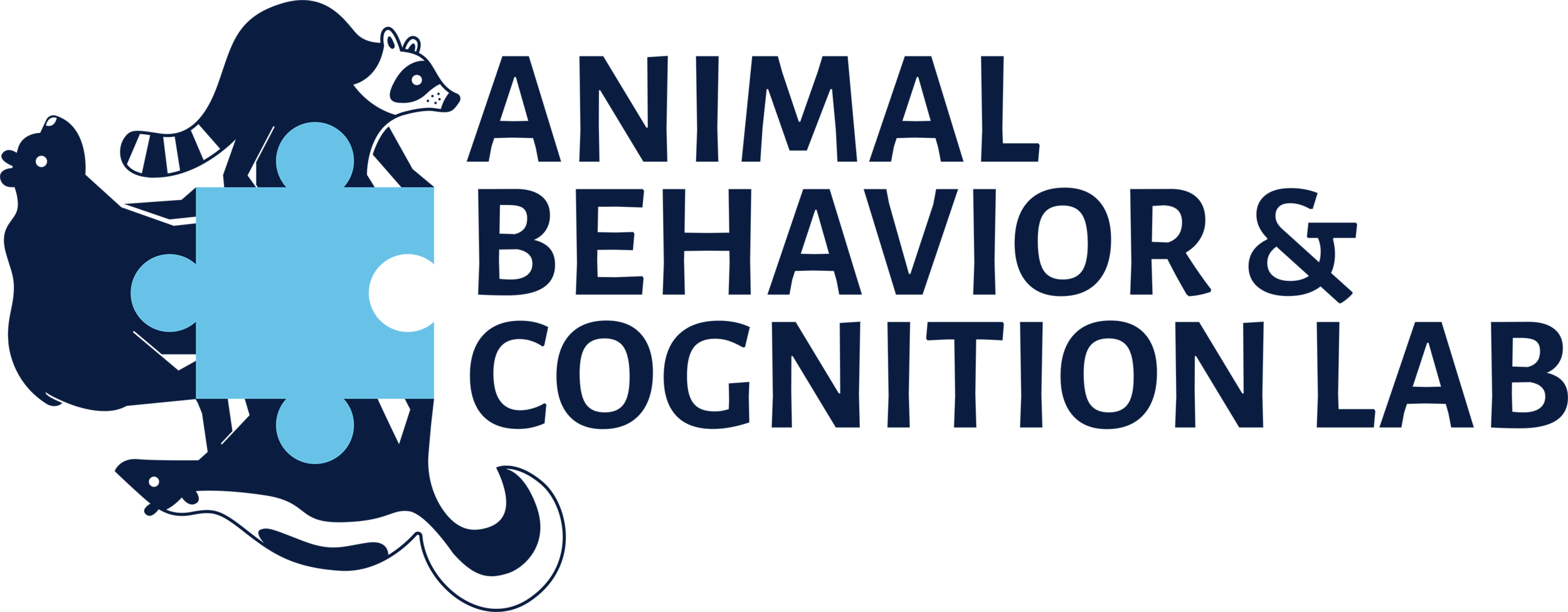Personality & Cognition
Like humans, non-human animals also show consistent individual differences in their behavior. These individual differences have been shown to have important fitness implications for many species. However, the relationship between individual personality and performance on cognitive tasks remains unclear. We have assessed this relationship in studies of Asian elephants, raccoons, and zebra finches.
Our ultimate goal is to be able to help predict which individual animals may be more prone to enter into negative interactions with humans by determining if there are consistent relationships between personality types and performance on cognitive tasks, which personality types are more likely to approach and solve novel problems, and if there is a difference in the types of problems that animals with different personalities are more likely to solve.
Project collaborators
Dr. Neeltje Boogert
Exeter University
Dr. Eli Bridge
University of Oklahoma
Dr. Chris Templeton
Pacific University
Dr. Joost Huizinga
OpenAI
Major findings from the project
Docile raccoons may pose a greater long-term management challenge than more aggressive raccoons. Our research has shown that raccoons quickly learn to avoid risky or adverse situations (e.g., trapping), but are able to exploit benign, profitable opportunities (e.g., feeding from an automated device) (Stanton et al. in review). In a reversal-learning study on wild raccoons, we have also found that shyer, more docile individuals perform better on a reversal-learning task than bolder, more aggressive individuals (Stanton et al. in review).
Asian elephants show evidence of repeatable individual differences and aggressiveness and activity are important predictors of problem solving on some tasks. We evaluated Asian elephants at three different zoos in the United States with three types of personality assessments and with three different problem-solving tasks. We found evidence for personality in elephants in two out of the three personality assessments. We also found that more aggressive and more active elephants were faster at solving two problems, but that more active elephants were actually slower at solving a third problem.
Zebra finches exhibit consistent personality types, even over a 2-year time period. Neophobia, dominance, and activity were the most important personality traits associated with problem-solving performance in zebra finches. We presented 41 captive zebra finches with three different problem-solving tasks. We also assessed individual variation in six different personality traits. We looked for consistent individual responses across trials in the short term, and in the long-term (two years later). This study highlights the importance of examining multiple measures of personality and presenting animals with multiple problem-solving tasks when examining the relationship between animal personality and cognition.
Check out these videos of our research!
Asian elephants in action:
https://supp.apa.org/psycarticles/supplemental/com0000281/com0000281_supp.html
https://www.animalbehaviorandcognition.org/uploads/files/FloatingObject_ESM_1.mp4
https://www.animalbehaviorandcognition.org/uploads/files/FloatingObject_ESM_2_Revised.mp4
Problem-solving zebra finches:
https://drive.google.com/drive/folders/17gkzkNxglyc-6bQcegIzHBKBK9XMszkJ
Featured publications
Stanton, L., Bridge, E., Huizinga, J., and S. Benson-Amram. In review. How environmental, individual, and social traits of free-ranging raccoons (Procyon lotor) influence participation and performance in cognitive testing. Journal of Experimental Biology
Barrett, L.P., Marsh, J., Boogert, N., Templeton, C., and S. Benson-Amram. In revision. Links between personality traits and problem-solving performance in zebra finches (Taeniopygia guttata). Royal Society Open Science.
Barrett, L.P. and S. Benson-Amram. 2021. Multiple assessments of personality and problem-solving performance in captive Asian (Elephas maximus) and African savanna elephants (Loxodonta africana). Journal of Comparative Psychology, 135(3): 406-419.
Barrett, L.P., Stanton, L., and S. Benson-Amram. 2018. The cognition of ‘nuisance’ species. Animal Behaviour, 147, 167-177

